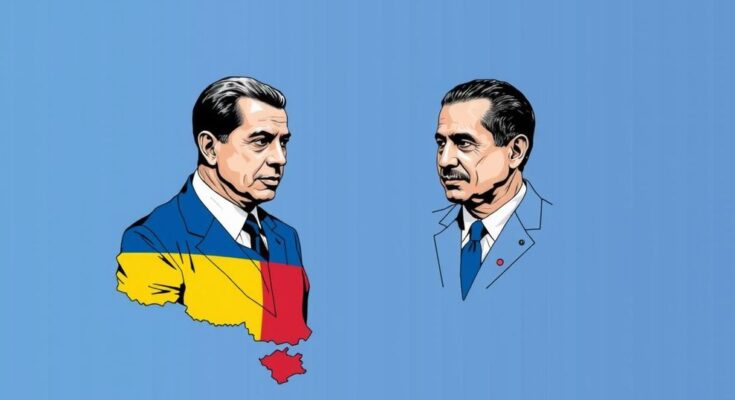The U.S. has imposed sanctions on 21 allies of President Nicolás Maduro, alleging their involvement in repression following the disputed July election. Among the sanctioned are high-ranking officials, with additional visa restrictions implemented against those accused of human rights abuses. The Biden administration recognizes opposition candidate Edmundo González as president-elect, as Maduro continues to avoid substantiating his electoral victory claims.
In a decisive move, the United States has levied sanctions against an additional 21 officials aligned with Venezuelan President Nicolás Maduro, citing their roles in the repression following the contested presidential election of July. Among the sanctioned individuals are senior security personnel and key cabinet members, marking a continuation of U.S. efforts to respond to human rights abuses in Venezuela. The Biden administration recently recognized Edmundo González, the opposition candidate, as the newly elected president, while Maduro’s government has failed to substantiate his claimed electoral victory with credible vote counts.
The sanctions encompass the head of the nation’s corrections agency, the director of an intelligence agency, and the minister responsible for Maduro’s presidency. This action adds to the existing sanctions on numerous other Maduro affiliates, including high-ranking judges and ministers. Moreover, visa restrictions have been imposed on individuals identified as perpetrators of repression following the contentious elections. Maduro, despite proclaiming victory, has not demonstrated any official vote tallies to validate his statements.
Edmundo González fled Venezuela in September, seeking asylum in Spain, after an arrest warrant was issued against him linked to alleged electoral misconduct. This sanctioning initiative follows earlier U.S. actions in September that targeted 16 of Maduro’s associates for their roles in obstructing democratic processes and engaging in human rights violations. The impact of these latest sanctions remains uncertain, as those previously penalized retain substantial influence within the Venezuelan administration. Concurrently, Venezuelan lawmakers are debating a bill that would categorize economic sanctions as crimes against humanity, potentially criminalizing support for these measures.
The political landscape in Venezuela remains fraught following a disputed presidential election in July, which has drawn international scrutiny. The U.S. has been vocally critical of President Maduro’s administration, accusing it of significant human rights violations and electoral manipulation. The U.S. sanctions aim to hold accountable those involved in the government’s repressive actions against dissenting voices and supporters of democracy, as well as to pressure Maduro’s regime into restoring electoral integrity. The broader ramifications of these sanctions reflect the ongoing struggle between Maduro’s government and the opposition within Venezuela, exacerbated by the country’s political and economic crises.
In conclusion, the recent U.S. sanctions against additional Maduro allies underscore the American government’s steadfast stance against human rights violations in Venezuela. As the political turmoil continues, the recognition of opposition leader Edmundo González as president-elect illustrates an increasing international support for democratic governance in the nation. While the effectiveness of these sanctions remains to be seen, they signal the U.S. commitment to addressing the humanitarian crisis and fostering political change in Venezuela.
Original Source: abcnews.go.com




